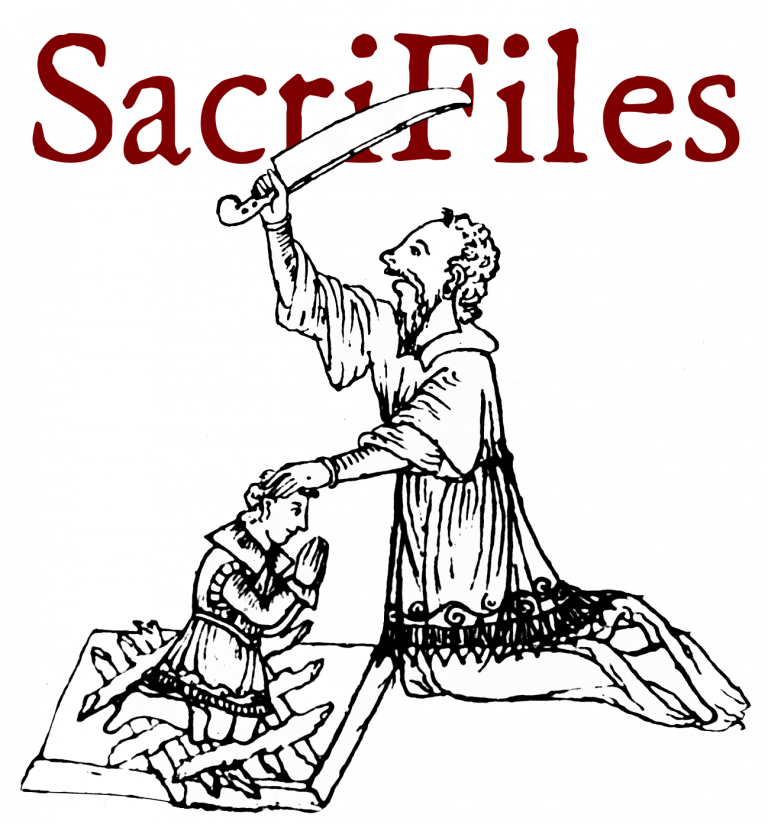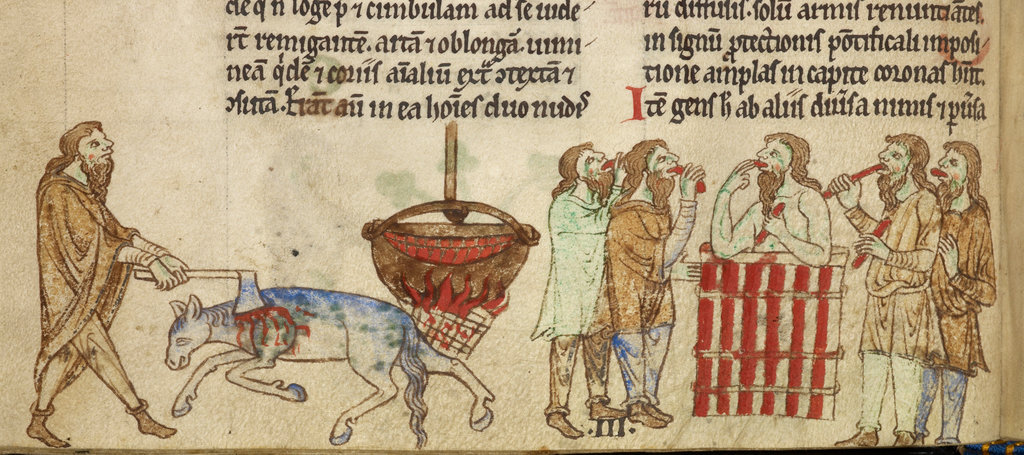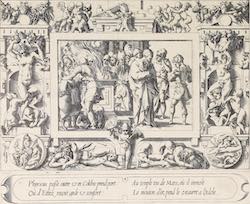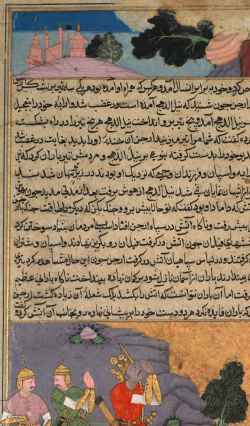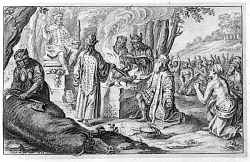An Irish ritual of kingship: the sacrifice of a white mare and preparation of a stew, in which the king bathes and which his supporters ea
Year: ca 1196-1223
Location: British Library, London [ms Royal 13 B. VIII, fol. 28v]
External link: www.bl.uk
2. Sacrifice and religion: Comparisons, Antiquarians, Anthropology (16th-18th Century) 3. Sacrifice and politics (16th-18th Century)
Authority file: https://viaf.org/viaf/67260463/
Related Documents:
The Sacrifice of King Oetes (16th Century)
from: Gohory, Jacques. Livre de la Conqueste de la Toison d'or, par le Prince Jason de Tessalie : faict par figures avec exposition d'icelles, [Paris], n.p., 1563, no page
Bibliothèque Nationale De France, Paris
"The First Adventure of the White Horse". The king performed the horse sacrifice in order to determine the extent of his rule. For one year a horse wanders and every land through which the horse passes becomes part of the king’s territory. Arjuna following the horse encountered the son-in-law of the god of fire, Agni, who creates a river of fire to block the warriors. Arjuna pleads with Agni, the god of fire that the horse be allowed to pass, saying that the horse sacrifice is in accordance with sacred Vedic injunctions, and that at the end of the year, the horse will be sacrificed to him, the god of fire himself. (1610-1617)
from: Page from the Khan Khanan's Razm Nama (Book of Wars)
The Cleveland Museum of Art
Persons bringing sacrifices to Hercules (1629)
from: Philostratus of Lemnos. Les images ou tableaux de platte peinture des deux Philostrates, sophistes grecs, et les Statues de Callistrate, tr. Blaise de Vigenère. Paris. 1629, p. 494.
The Warburg Institute, London
The Sacrifice of Iphigenia [1710-1720]
Musée de l'Histoire de France, Versailles
A king sacrifices an animal in front of the statue of Thor (1639)
RKD – Nederlands Instituut voor Kunstgeschiedenis
